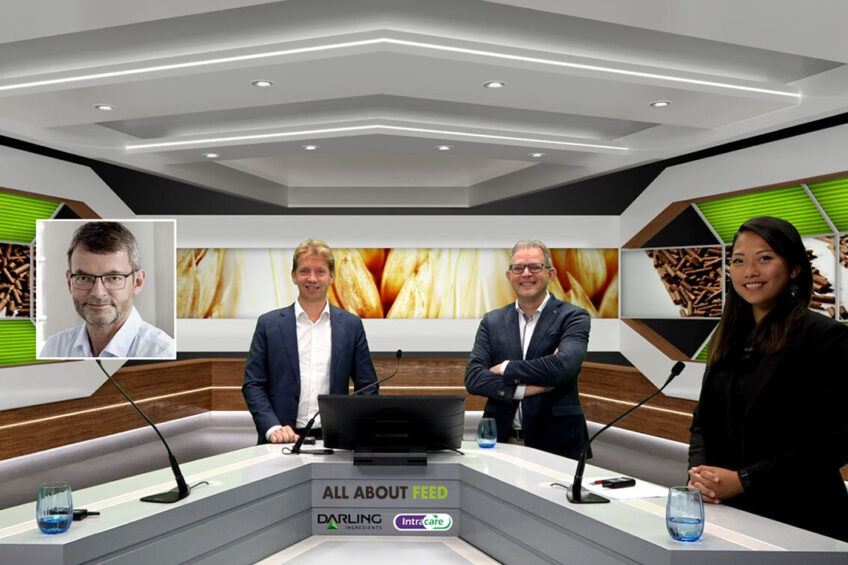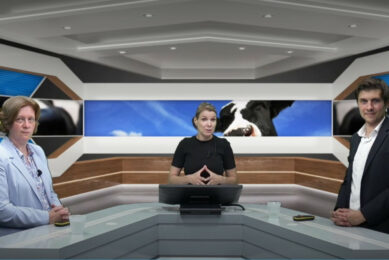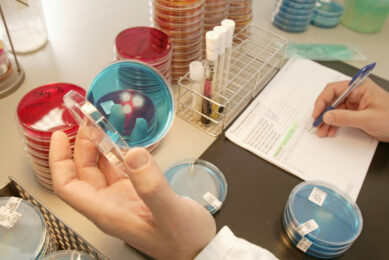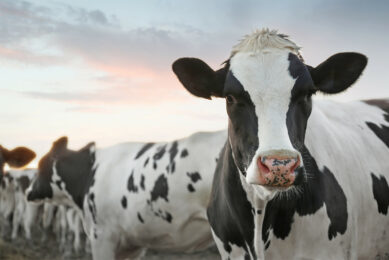On-demand: Webinar on antibiotic reduction

Antibiotic reduction in dairy cows as well as in pigs was the theme of a recent webinar organised by All About Feed, sister title to Dairy Global. The webinar is now available to view on demand.
View the antibiotic reduction webinar
The webinar was held on September 30 and featured speakers Jan Dahl, Danish Agriculture & Food Council, Dr Lourens Heres, Darling Ingredients and Cheng Lee, Intracare.
Antibiotic reduction in Denmark
On behalf of the Danish Agriculture & Food Council, chief advisor Jan Dahl explained the developments that have been going on in Denmark in recent decades. He zoomed in on swine production; in Denmark, the usage of antibiotics is relatively low in dairy cattle, he said. The real developments took place in swine production.
One of the strategies to reduce antibiotics he said is to zoom in critically on the amounts used. Does the entire treatment according to the marketing authorisation always have to be completed, he asked, or would it sometimes be possible to stop earlier? He pointed to a development in human medicine. He said, “At least in Denmark physicians are trying to shorten the treatment. They say when the clinical effect is achieved – or maybe the clinical effect plus one day – then you should stop.”
Doing the same in veterinary medicine is also behind the drop in antibiotic usage in Denmark, Dahl said. “Now here we have a problem,” he said as this method used in Denmark for many years “is now being challenged by new EU legislation.” Article 106 on the use of medicinal products compels vets and farms to use the products in accordance with the marketing authorisation.
Enabling zinc and antibiotic reduction
The 2nd presentation was given by Lourens Heres, manager of global technical support at Darling Ingredients. The theme of his presentation was to zoom in on the use of spray-dried porcine plasma (SDPP) as part of a strategy to lower antibiotic as well as zinc oxide usage.
He shared results of e.g. E. coli challenge trials by the SAC in Scotland, UK and feeding trials at Wageningen University & Research (WUR), the Netherlands. All in all, he said, plasma is a feed ingredient that improves health and gut resistance; and that it is a proven alternative for preventive use of antibiotics and zinc oxide.
View the antibiotic reduction webinar
Spirochaetal diseases in swine and cattle
Spirochaetal infections in cattle and swine were on the menu at the presentation of Cheng Lee, product manager at Intracare. One of the Spirochaetes bacteria, the Treponema species, are a causative agent for digital dermatitis (mortellaro) in dairy cattle – and antibiotic treatments did not always yield good results. The company has developed a gel (Intra Epidine and Intra Hoof-fit) that can heal problems related to digital dermatitis.
In pigs, however, Spirochaetes bacteria are associated with an entirely different type of clinical problem, being swine dysentery. A well-known example is Brachyspira hyodysenteriae. For that approach, the company developed a non-antibiotic method based on a zinc chelate, that can be added through drinking water. Lee explained how the chelate “sits on the receptor on the intestinal epithelial cell, to prevent the attachment of the bacteria.” That way simply giving the pathogen no chance to do their harmful job; instead, it will be flushed out of the system.
Join 13,000+ subscribers
Subscribe to our newsletter to stay updated about all the need-to-know content in the dairy sector, two times a week.










